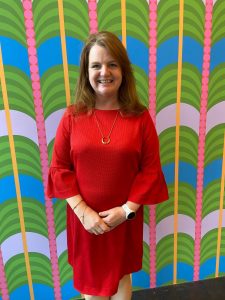
Aberdeenshire Council has appointed an additional Primary Science Development Officer (PSDO) to lead upon the development of STEM learning in primary schools.
Caroline Nicol has joined Dr Kim Aplin as part the national RAiSE network.
RAiSE (Raising Aspirations in Science Education) is a programme of The Wood Foundation, Scottish Government, Education Scotland, and participating local authorities which empowers primary practitioners with the confidence, skills, and networks to develop and deliver motivating and engaging STEM experiences.
Caroline Nicol said:
“I am really looking forward to better understanding the need of Aberdeenshire teachers and working together to realise opportunities which support improved STEM experiences for our young people. So much has been achieved already and I am pleased to be bolstering the team so we can extend and deepen our offering.”
Since it launched in Aberdeenshire in January, key activities have included:
- Professional learning including: an event for 120 probationer teachers alongside Aberdeenshire’s digital team; a focus on early level biodiversity; an engineering session accompanied by resources relating to Rosie Revere Engineer; support in using MakeDo and Kapla; and facilitating a partnership with Global Underwater Hub locally.
- Outdoor learning and family engagement session with a small, rural school which led to a bank of resources which have been shared throughout the authority.
- Facilitating the ESP First Lego League locally.
- Working alongside the authority’s digital team developing a transition resource focussed on sustainability and fishing.
- Development of a STEM resource linked to the Tour of Britain.
Fiona Cruickshanks, Strategic Lead with responsibility for STEM at Aberdeenshire Council, said:
“We are pleased to part of the RAiSE network. As an authority, we fully recognise that STEM is hugely important to our region’s success now and in the future. We must act strategically in order to empower the next generation.”
Twenty-two of Scotland’s 32 local authorities have now benefitted from the investment which funds the secondment of PSDOs for a two-year period to develop a strategy, action plan, build networks and partnerships, develop resources, and deliver professional learning, acting as a central point of contact for STEM learning locally.
Dr Kim Aplin said:
“From my time as a teacher and headteacher, I know just how important it is to identify high-quality training, resources, and partnerships which bring the curriculum to life in a very accessible way. With so many competing priorities, STEM can be seen as an add-on. It is our role to showcase that it can in fact be a driver to achieve a range of priorities, while really playing to children’s natural enthusiasm to figure out the world around them.”
Through recent surveying, more than 80% of practitioners said the programme challenged pupils in their learning, and that they had received support for developing pupils’ skills for learning, life, and work. They also said pupils’ aspirations had increased and that they had received support to build their own confidence, skills, and knowledge of STEM.

